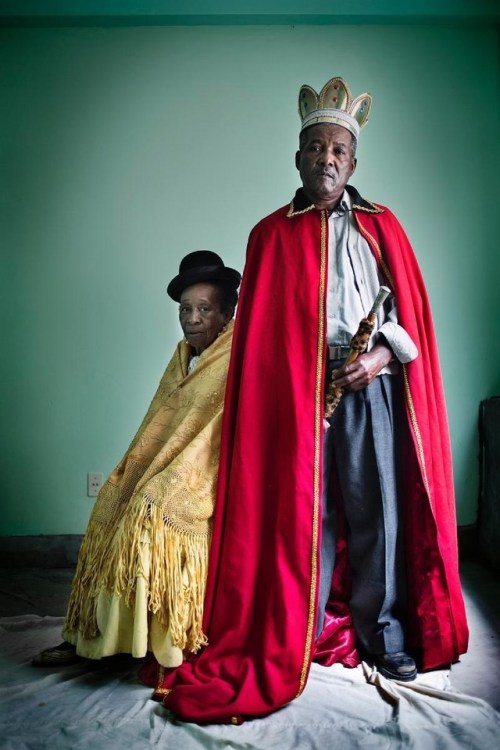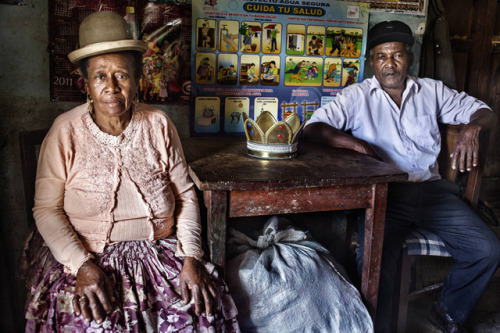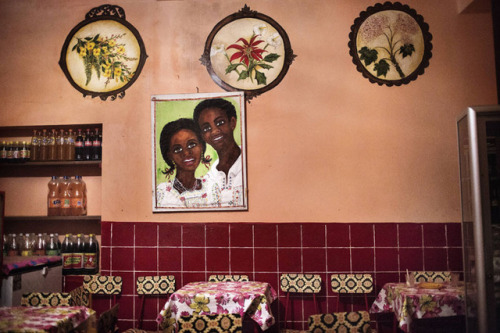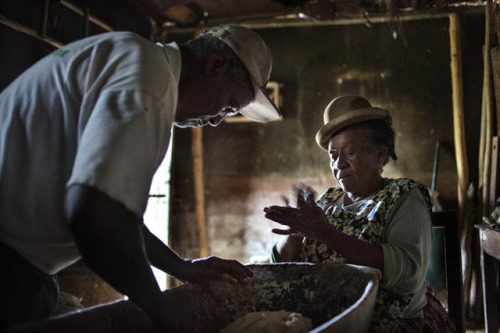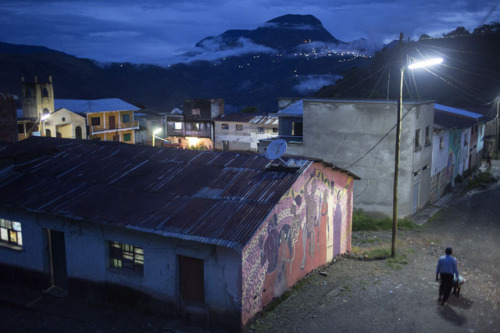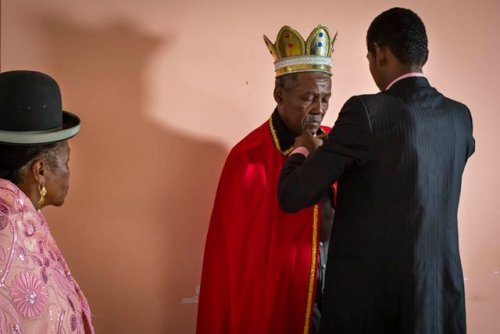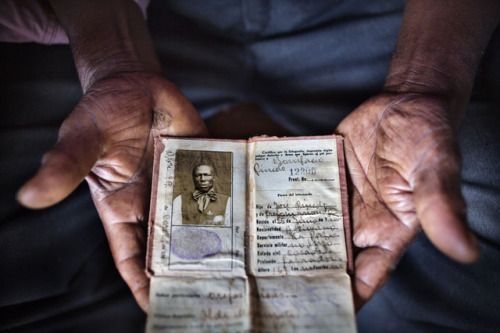The Last King of America: An African King in Bolivia“Tucked away in an isolated part of Bolivi
The Last King of America: An African King in Bolivia“Tucked away in an isolated part of Bolivia, there is a royal family whose existence is as surprising as it is humble. Despite his title, King Don Julio I and his wife live in a small apartment atop a small store in Mururata, Bolivia, where he farms coca leaves and other crops.Yet this modest monarch can trace his lineage to [Central] Africa, where his ancestor Prince Uchicho was enslaved in 1820 and taken by the Spaniards to work in the silver mines of the region. That era gave rise to the country’s Afro-Bolivian population, which sustained the tradition, which was largely ceremonial, said Susana Giron, a Spanish photographer who was intrigued by the life of the current king, who was born 73 years ago as Julio Pinedo.”“I had read stories about how there was a king hidden in the jungle,” Ms. Giron said. “But the story was not very good and the pictures were poor. There was nothing serious that took time. So I decided to document it in depth.”She had actually stumbled across the story while researching projects to do in Bolivia, which she had planned to visit after participating in a 2012 exhibit in Argentina. It turned out the royal house had a website, which put her in touch with a Spanish diplomat who had been helping the king and his family, paying to send their son, Prince Rolando, to school in La Paz. Through the diplomat, Ms. Giron arranged to stay in the king’s town, being put up in an office across the street from the royal residence, spending the night in a sleeping bag with blankets provided by Queen Angelica.According to the website and Ms. Giron, after Prince Uchicho was enslaved and taken to Bolivia, other slaves recognized him and persuaded the owner of the hacienda to let them work more hours so the prince would be spared having to toil. He was succeeded by others until the mid-1950s, when King Bonifacio I died, and none of his children took the royal mantle.Ms. Giron said that a historian who purchased the old hacienda — where the Pinedos had taken the names of the slave owners — learned about the royal connection to Africa and set about to find an heir. His efforts, she said, led him to Julio Pinedo, who was named king in 1992.“He is a symbolic figure,” she said. “For the Afro-Bolivians, he is important because he gives them a cultural identity. It shows they are a people descended from Africa. It is about their history and culture.”The history of Africans in Latin America has been coming more and more to the fore in recent years. In Bolivia, it was not until recently that they were even counted in the national census, with their 2012 population pegged at some 23,000 in a country of 10 million. They still face discrimination and socioeconomic obstacles.“He doesn’t feel like a king,” Ms. Giron said. “He told me, ‘A king lives in a palace, not in misery.’ He is shy and doesn’t talk much. He would rather talk about agriculture than being a king.”In fact, to gain Mr. Pinedo’s trust, she spent a lot of time with him, at first accompanying him on his daily tasks, in the fields and in town. She said it was important to be discreet and helpful. He ran a small store that sold basic goods — refreshments, oil, bread and vegetables — as well as cultivating a coca patch, whose leaves he harvests, with Prince Rolando’s help, and sells at market.When he is relaxing, in the store or at home, the king prefers to watch television. His wife on the other hand, is more outgoing. Ms. Giron said she participated in a lot of local events and goes to literacy classes, too.Ms. Giron has returned to the town to continue documenting his story. There is even talk of the royal family visiting parts of West Africa that may have royal relatives.“There have been symbolic connections, but they have never traveled to Africa,” Ms. Giron said. “He accepts that humbly, and he would go. He accepts being a king, though it does not excite him. He’s not comfortable in the world of diplomacy. He’s a farmer.”Source: https://mobile.nytimes.com/blogs/lens/2015/11/17/an-african-king-in-bolivia/ -- source link
Tumblr Blog : latin-american-diversity.tumblr.com
#african diaspora#latin america#african king#afro-latinx#latinx#black people#afro-bolivian#bolivian#afro-bolivians#afroboliviano#south america#andean#afro-andean
